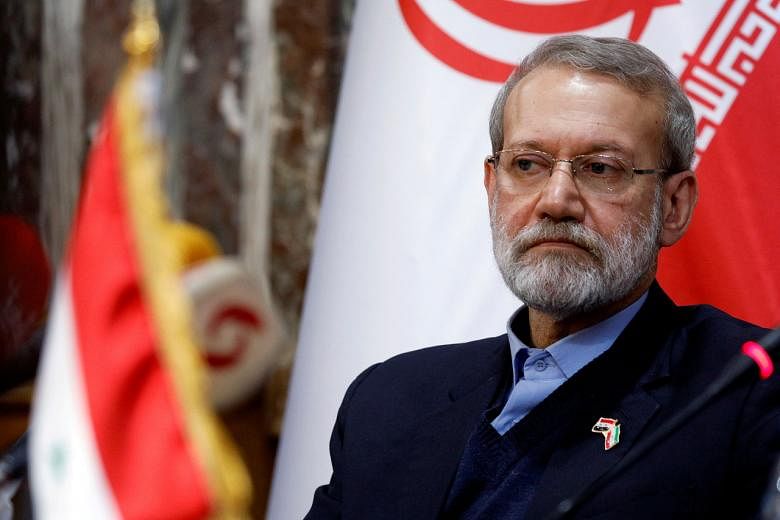TEHERAN (AFP) - Iran's ex-parliament speaker Ali Larijani on Saturday (June 12) demanded an explanation of why he was barred from running in next week's presidential poll but was promptly rebuffed by the election watchdog.
The moderate conservative was disqualified by the powerful Guardian Council in a surprise move that leaves judiciary chief Ebrahim Raisi, an ultra-conservative, the clear favourite in the June 18 election.
Mr Larijani called on Twitter on the Guardian Council to "officially and publicly disclose all the reasons" for his disqualification as reports on him and his family had been "proven to be false".
The council's spokesman in response said the law does not mandate the body to explain its reasoning in public.
The vetting process is carried out using "adequate and trustable documents", Mr Abbas Ali Kadkhodaee said in a tweet reported by local agencies.
"The presidential election law has not specified anything regarding protesting disqualifications and public disclosure of their reasons," he said.
The conservative-dominated, unelected council has approved seven candidates, five of them ultra-conservatives, to run in the election from a field of about 600 hopefuls.
In addition to Mr Larijani, who serves as advisor to supreme leader Ayatollah Ali Khamenei, it also barred first vice-president Eshaq Jahangiri and firebrand former president Mahmoud Ahmadinejad.
The disqualifications have unleashed a flood of criticism, including from a member of the 12-man council.
Ayatollah Sadegh Amoli Larijani, a former judiciary chief and brother to the ex-speaker, said "security bodies" were influencing the council's decisions through "false reports".
President Hassan Rouhani, who is constitutionally barred from running for a third consecutive term, said last month he had sent a letter to Mr Khamenei asking him to intervene and ensure greater "competition" in the election.
The supreme leader in a May 27 speech urged voters to ignore boycott calls but turned a deaf ear to criticism of the vetting process.
A week later, however, he said some candidates had been treated "unjustly" as "they and their families were accused of false things", without giving names.
The Guardian Council said "false reports" had not influenced its decisions.

